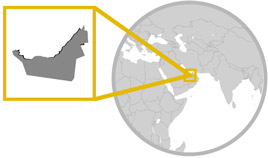Education in Mexico is regulated by the Secretaria de Educacion Publica (Secretariat of Public Education) and all schools prior to a university level are set by this ministry. Private Schools are accredited via a mandatory registration and approval process with this ministry. Religious instruction is prohibited in public schools but many private schools, which receive no public funds, are allowed to maintain a religious doctrine. To attend any public school for free a proof of Mexican citizenship is required.
Primaria (Primary/Elementary School) makes up grades one to six and begins when the child turns six. Typically schools nowadays are bilingual but many still retain one language. Common languages taught in include Spanish, English, French, Tzotzil and Tzeltal. When the child turns 12 they begin secondary school.
Secundaria (Secondary/Junior High School) makes up grades seven to nine and begins when the child turns 12 and more specialized subjects are taught such as World History, the Sciences and Vocational Training. When the child turns 15 they start high school.
Peparatoria (High School) makes up grades ten through to twelve and begins when the child turns 15. At this level, college-level education is available and the programmes incorporated include SEP incorporated A and University Incorporated, dependent on the state. Private schools may also have access to the International Baccalaureate and other systems. The first few terms are made up of a more common curriculum and the latter having a deeper amount of specialization including the social sciences such as Law, Philosophy and Law or the physical sciences such as Biology, Chemistry and Physics. The student graduates upon turning 18.
Following this, the student may opt to move into a University. Degrees offered include the Licenciatura (Bachelor’s Degree) which lasts for 4 years, the Maestria (Master’s Degree) which lasts 2 years and the Doctorado (Doctorate’s Degree) lasting for three years.

